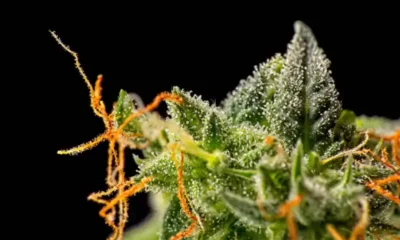Connect with us
Published
1 year agoon

Last month, Hawaii’s remaining, active cannabis legalization bill, Senate Bill 669, failed to receive a hearing in the House before a legislative deadline passed, leaving the bill dead for the year despite it passing by a landslide in the Senate. While it’s a disheartening reality for cannabis advocates in the state, it appears leaders are already gearing up to revisit the conversation of cannabis legalization.
During an April 13 confirmation hearing, Hawaiian Attorney General Anne Lopez (D) said her office will no longer oppose cannabis legalization. Moreover, the office will work with lawmakers and stakeholders moving forward to help proactively advance reform measures.
The district attorney was appointed by the governor in December but still needs to be confirmed by the Senate for a full term. Lopez was asked on Wednesday during her confirmation, which was ultimately endorsed by the Senate Judiciary Committee, whether the department would take the position to “automatically oppose” legalization bills, as it has done in the past.
“We will not flat-out oppose it,” Lopez said. “With respect to the policy, I do believe that is the legislature’s area to make those decisions.”
Lopez then committed to work with legislators to create comprehensive cannabis reform legislation, specifically saying that her office would lead an administrative task force before the next legislative session that will develop “a complete regulatory and law enforcement legislative package that you can attach to any bill if you’re planning to legalize marijuana.”
She added that her office will use their experience so far, and the experience of other states with legal cannabis laws, to create a structure “that will allow the state to have legal recreational marijuana with as few problems as the other states on the mainland have experienced.”
Lopez also said that the department would be “more than happy” to participate in a separate legalization working group being proposed as part of the bill, though she intends to organize a multi-agency effort between the state’s Department of Health, Department of Agriculture, and law enforcement agencies, to ensure that the program will be supported by the executive branch.
“I’ve changed our position from opposition to ‘that train has left the station,’” Lopez said. “So let’s find a way to help you. Let’s give you those guardrails so that you can implement the law and the policy that you want.”
Following SB-669’s stall-out in the House, lawmakers and advocates are looking ahead to next year, and the district attorney seems to be on the same timeline.
The bill would set up a framework for cultivation, manufacturing, sales and taxes for the recreational cannabis program. It would also allow residents to possess up to 30 grams of flower, cultivate up to six plants for personal use and decriminalize possession of small amounts of cannabis as well.
Hawaii’s history with cannabis legalization dates back to the beginning of the new millennium. The state became the first to permit medicinal cannabis use via an act of the state legislature in 2000. Legislators have also worked to enact recreational legalization in Hawaii over several sessions. Back in 2021, lawmakers approved a recreational cannabis legalization bill in the Senate, though it similarly failed to proceed past a House committee before a key deadline passed.
The majority of Hawaiians also seem to agree that it’s time for legal adult-use cannabis in the Aloha State. A recent survey released by the Hawaii Cannabis Industry Association found that 52% of residents supported a revision to current laws to legalize adult recreational cannabis use in the state, with 31% opposed.
The survey also found that more than 75% of residents have a “favorable opinion” toward either medicinal or recreational cannabis use, and nearly 70% of residents believe that cannabis can be used safely. Hawaiians also highly favor medicinal cannabis, with approximately 75% showing support for the medicinal use of cannabis.


Despite City Efforts, Hemp Shops Posing as Dispensaries Prevail in Las Vegas


Cannabis Community, Investors React to DEA Decision To Reschedule


Georgia Governor Signs Bill Establishing Licensing Requirements To Grow Hemp


Study: Psilocybin Enhances Meditation


Ohio GOP Lawmakers Debate Adult-Use MJ Priorities, Eye June for Regulation Approval


Taylor Swift Puts Narcotics Into All of Her Songs on ‘The Tortured Poets Department’
